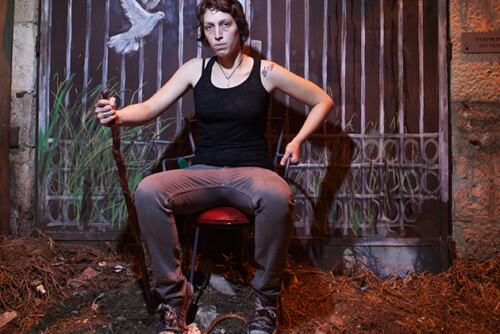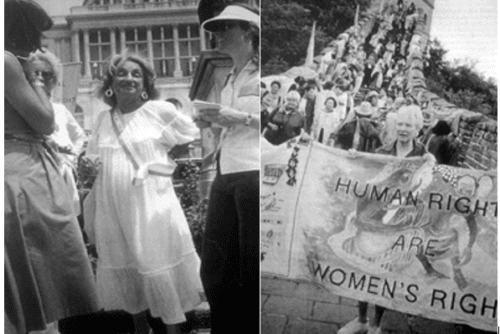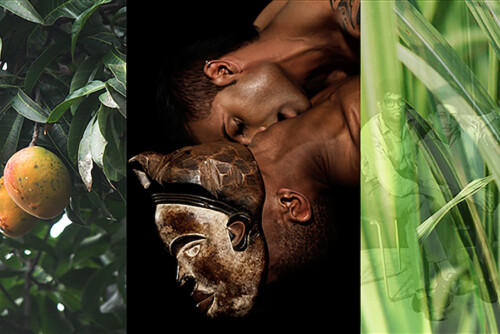Exploitations: Allies that Won’t Behave
Having participated in queer communities for decades, I have been aware of damage done to those who are different, both from within these communities and outside of them, sometimes unintentionally or even with the best of intentions. How then, do we, as members of some communities and allies to others, refrain from causing more damage than has already been done to the people about whom we write? In my own research, for example, I deliberate over the ongoing debate between those who identify as intersex and those who prefer the language of DSD (“differences of sexual development,” or the medicalized, “disorders of sexual development”). Do we embrace the language of intersex, and participate to a greater or lesser degree in the postmodernist queer discourse? Or do we instead use the language of DSD—positioning those who understand themselves as cisgender individuals with a medical condition as they wish to be positioned? While largely a tactical choice to push forward an activist agenda within the traditional medical context, the latter choice is sometimes born out of a particularly non-queer, non-trans, and sometimes even anti-queer/trans agenda. Those who embrace it do not want to be considered or associated with the queer community. On the other hand, the former raises another issue: the use of intersex bodies to bolster a claim for queerness has been seen by people with DSD as co-opting the bodies of real people who have no desire to identify as queer, for the queer community’s own political agenda. 1
The question of whether we are wronging actual people in our attempts to advance discourse or theory is not unique to queer studies or religious studies. 2 What is unique to this field (or at least, shared by fewer academic fields) is the investment of many of its academicians in the community or communities of which they write, beyond the ivory tower. Many (though not all) academic fields traditionally situate themselves outside of the frame that they are studying (sometimes self-conceived as “objective”). In contrast, it seems to me that the intersection of the subjects that we are here to talk about has particular power, because while we are, on the face of it, discussing academics, many of us believe that those subjects are not only academic. We have a “vested” interest, often in queer, sometimes in religion, and sometimes in both.
I noticed (and appreciated), the variety of language used to describe the very workshop out of which this paper emerged: “a … workshop on Gender, Religion and Queer Theory,” or, “Intersection of Queer Studies and Religion.” One of the issues it was suggested that we address was: “How do queer theoretical approaches affect the study of religion and gender?” This triumvirate signifies both the beauty and the knottiness (pun intended) of this particular intersection. Are we interested in Queer Studies? In Queer theories? In queer cultures? In our own queer identities? Are we discussing its effects on the study of religion? On religion itself? On our own religious beliefs or approaches? Do we believe that the academy and the lived experience are the same? Connected? Disconnected? In many ways the lines between where we end and our studies begin are less clear at this intersection than it seems they are to some researchers in other fields. Many scholars engaging at the intersection of these fields are positioned between two spheres at least one of which holds great weight in our lives, not only academically, but spiritually, socially, and as a part or parts of our identity. I believe this is a strength of this part of the academy, and I believe we will reap the benefit of that difference if we are able to bring it to the table and to develop it more systematically as an integral part of our conversations about methodology.
Exclusions: Language that Won’t Behave
Finally, I find myself intrigued by a different language question—that which is sometimes put in terms of “obscurantist” versus “politically purposed,” 3 or as “critical theory versus “introductory primers,” 4 depending on whose “side” one is taking in this ongoing (sometimes acerbic) battle. This issue has been ground into fine flour by now, and I will not spend a great deal of time repeating the arguments, but I do wish to put on the table two points, as part of the greater question I am asking.
The first point I believe we must grapple with as we write is—if we are truly invested in “the natives of whom we speak,” 5 and all the more so if we are in community with, or are ourselves, those natives, how important is it to speak in a language in which we are understood by those beyond the academy. Although I fervently believe that language is there to be manipulated (as has historically been done not only by academics, but also by activists); and although I agree with Butler 6 and others who claim it is political and radical to do so; and although I believe that language constructs and organizes how we see the world, I throw my lot in with those who are disinclined to use theoretical technical language. If we balance the political needs that are served by the language of theory, against the effects of using language that is more accessible, I trust that the latter dominates. I believe that what serves the community better politically is for what happens in the ivory tower to be understood by a wider audience that includes those who have little or no access to the academy. And I believe that in this field, whether or not we intend to be, we are ultimately, political.
I do wish to add a word to the more than decade-long conversation about theoretical language about field-specific technical language. Although that conversation has been extensive, what I have not found discussed a great deal is the issue of interdisciplinarity. In a changing academic atmosphere of interdisciplinary studies, I have found this issue is magnified. In my own writing, for example, the two audiences I hope to reach are specialized in two very different areas—queer theory and rabbinics—and there is little overlap. Each of these fields has a specific set of specialized technical vocabulary, virtually unintelligible to anyone outside the field. Thus, if I hope to reach anyone at all, I must either choose a field to write within, or find ways to express myself that do not assume a knowledge of the “lingo” prior to reading my writing. If we are to be truly interdisciplinary, can we indeed expect our readers to become steeped enough to be proficient in the specialized language of more than one discipline? I think not.
Conclusions that Won’t Behave
Although I have tried to draw conclusions, they have consistently turned themselves into yet more questions. We who write about religion or religious issues and are at the same time invested in queer theory or queer politics, are at a strange intersection. It is clear that most (if not all) religious traditions have had a painful impact on queer people. So how do we remain academically faithful to the history of these (sometimes harmful) religious traditions, keep contributing to their growth and change, and do all of this without co-opting on the one hand, or excluding on the other, the already co-opted and excluded? Of course, this is impossible. But what is possible? What can we do with the tools of religion and queer, to open conversations with one other, and with activists outside of this room who may not share our (individual and collective) goals? How can we move towards an agenda that is inclusive of the excluded? How do we approach our work with integrity, and still allow the members of the communities we write about to see themselves in these texts?
I believe that we who stand at this intersection are uniquely positioned to come to our research with a heightened awareness of these issues. If we take seriously our work as scholars of queer theory, then queering our methods as well as our materials is essential. I put forward these questions as queer questions, questions that fall between and cross over communities (academic, queer, religious, intersex, etc.), disciplines (rabbinics, Queer studies, Religious studies), concerns (politics, integrity, activism, faith) and individuals (you, me, and the people we write about/for). As an insider/outsider, I have been grateful to read and listen to the scholars grappling with issues that arise at this intersection, and I am grateful to those who have taught me to read queerly not only when I open my texts, but when I ask myself important methodological questions. I look forward to conversations that keep us honest, thinking, caring and creative.
- Alyson Spurgas, “(Un)Queering identity: the biosocial production of intersex/DSD,” in Critical Intersex, ed. Morgan Holmes, (Burlington: Ashgate, 2009), 101; Eve Kosofsky Sedgwick, Epistemology of the Closet (Berkeley: University of California Press, 1990) 22-27.[↑]
- See, for example, Carolyn Fluehr-Lobban, Ethics and the Profession of Anthropology: Dialogue for Ethically Conscious Practice (Walnut Creek: AltaMira Press, 2002); Heidi Armbruster and Anna Lærke, Taking Sides: Ethics, Politics, and Fieldwork in Anthropology (New York: Berghahn Books, 2008).[↑]
- Terry Eagleton, “In the Gaudy Supermarket,” London Review of Books 21:10 (1999): 3-6.[↑]
- James Miller, “Is bad writing necessary?: George Orwell, Theodor Adorno, and the politics of literature,” Lingua Franca: The Review of Academic Life 9:9 (December/January 2000).[↑]
- Eagleton, “In the Gaudy Supermarket.”[↑]
- Judith Butler, “Exacting Solidarities,” London Review of Books 21:13 (1999).[↑]



